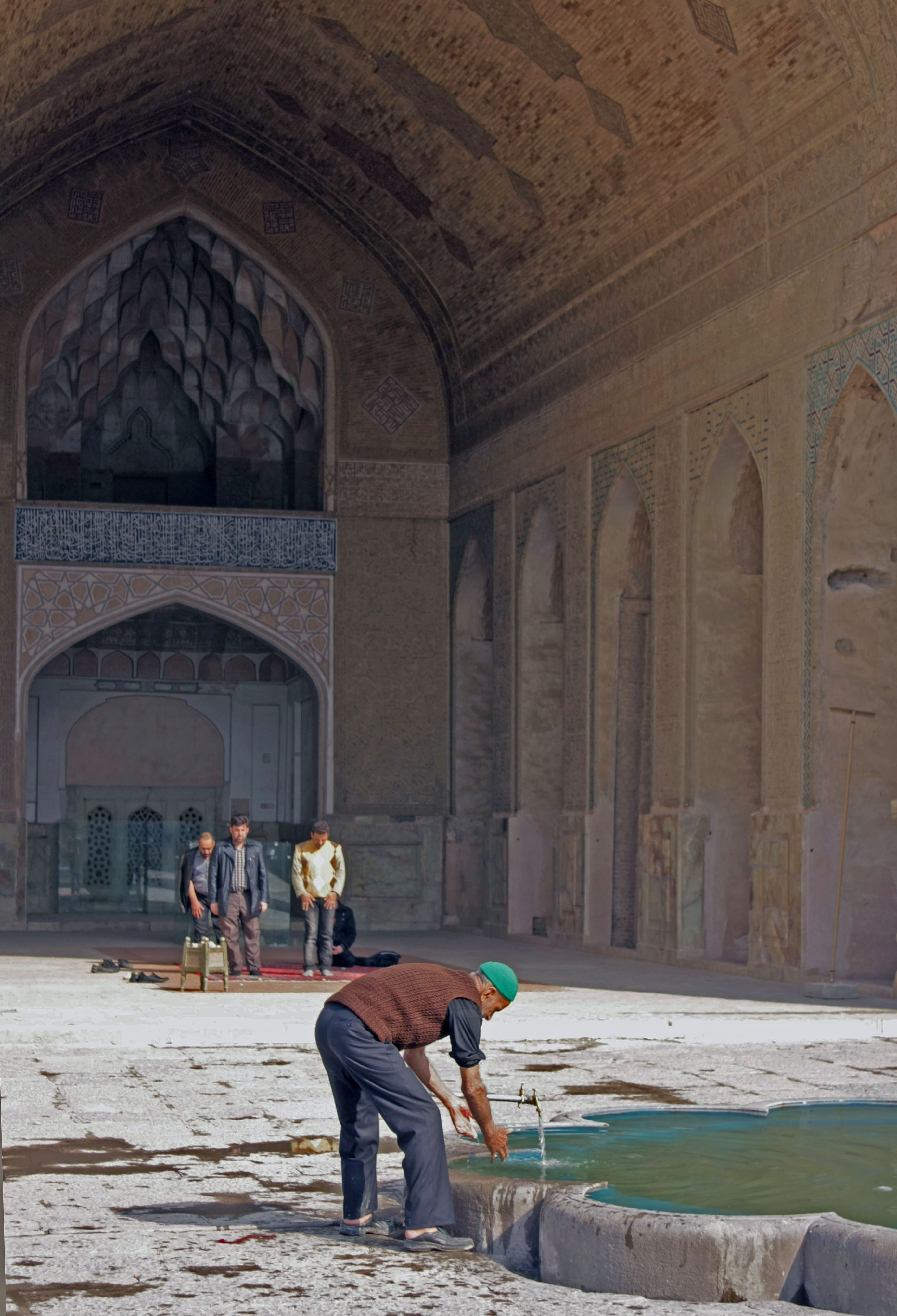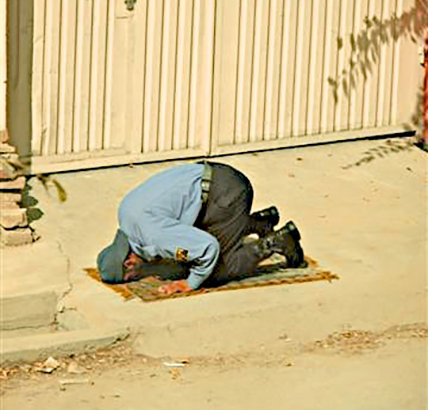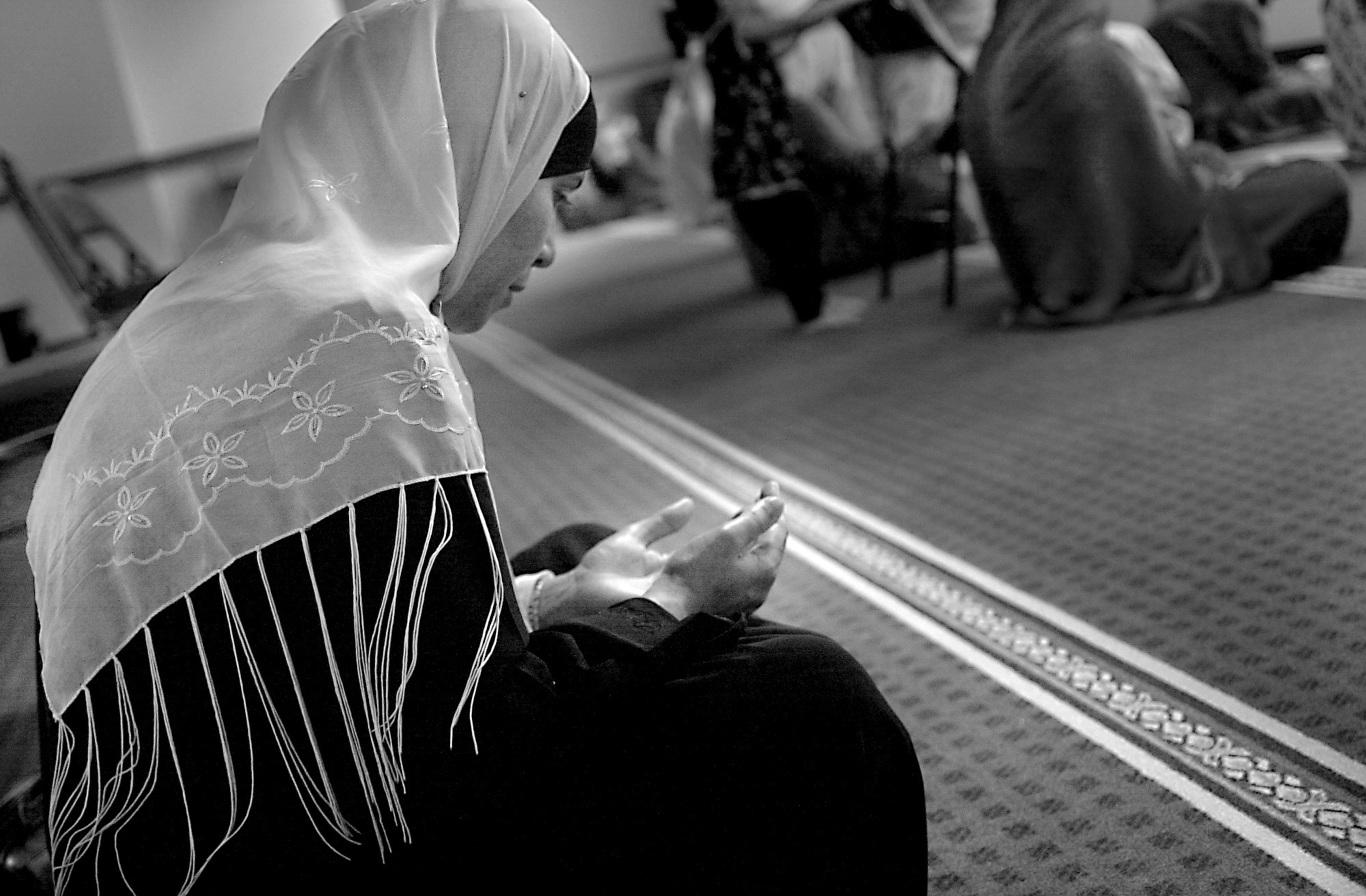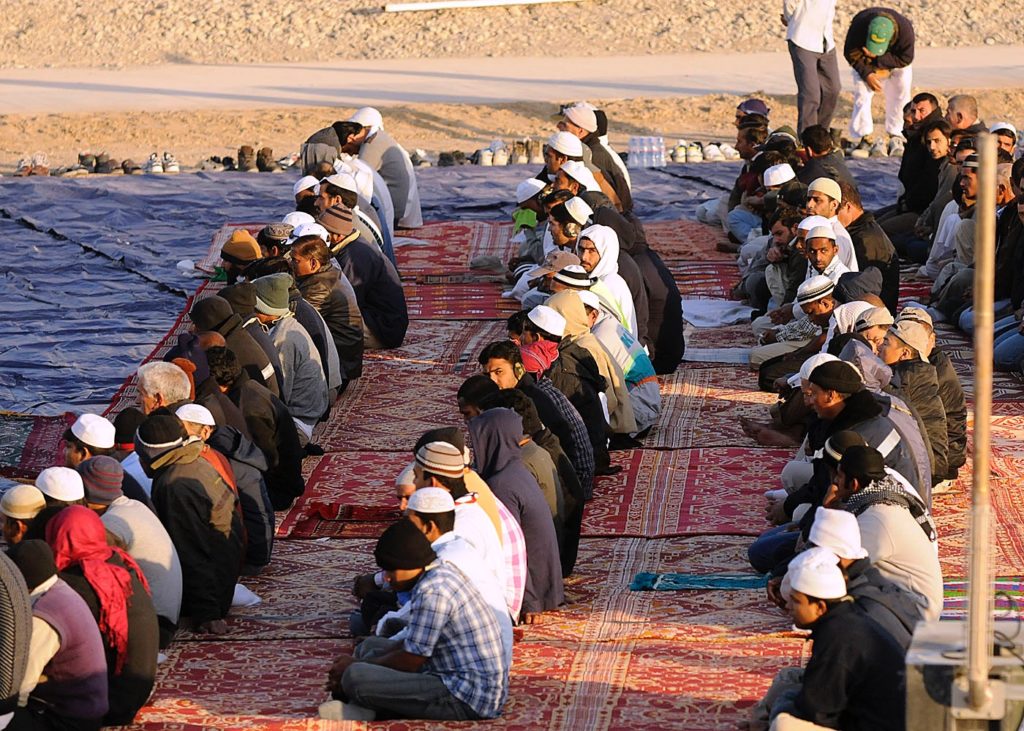Chapter Two: Faith and Religious Identity
Prayer, A Part of Daily Life for Muslims Around the World
Daily life in Muslim-majority regions varies greatly, but there are some universal experiences based on the practices required by shar’ia. One of them is prayer, although its practice varies amongst individuals, communities and whether the setting is urban or rural, and the degree to which local laws and practices are Western in orientation. Certain aspects are very common. In most Muslim-majority contexts, for example, Muslims hear the call to prayer from their windows five times a day. To an outsider, this may seem like a burden for Muslims, but to an insider it is an accepted norm. It may be considered as a way to set the pace of life and maintain orderly work and social patterns, especially in traditional areas. Each prayer has a practical function in addition to its spiritual function:
- Morning, or Fajar, the prayer just before dawn encourages an early start to the work day.
- Mid-day, or Dhuhur, is a short prayer at mid-day to ensure a break is taken from work (and implies work should be engaged in all morning).
- Pre-sunset, or ‘Asr, is another short prayer to ensure another break, and a healthy pace of work.
- Post-sunset, or Maghrib, prayer takes place just after sunset, and indicates a time of day when one can retire and be with family and community.
- Evening, or ‘Isha’, is the final prayer, which takes place in the evening and signals it is almost time for bed.
Expressions of Muslim Prayer:




![Image of Prayer Rug (Turkey) By Daderot (Own work) [CC0], via Wikimedia Commons](https://ohiostate.pressbooks.pub/app/uploads/sites/13/2016/07/Prayer_rug_Turkey_Bergama_late_19th_century_wool_-_Huntington_Museum_of_Art_-_DSC04879-1-791x1024.jpg)
Daily prayer is universal in Muslim communities because it is one of the five requirements all Muslims must observe, or the Five Pillars. It isn’t necessary to pray in a Mosque, or even a private area. The only requirement is that the space be clean. This is the purpose of the prayer rug.
